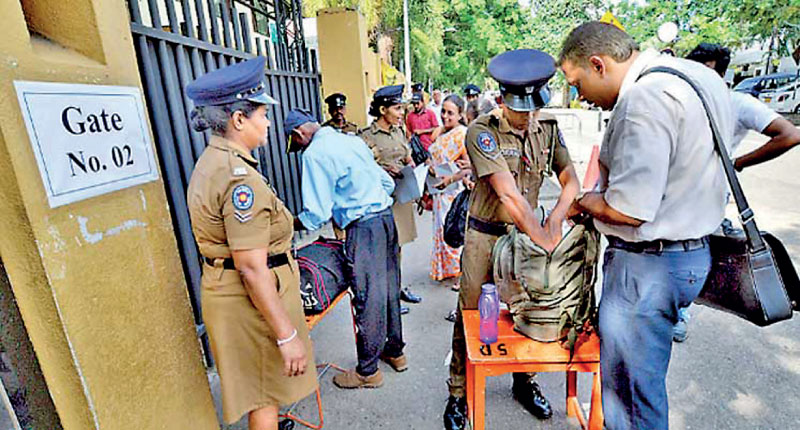Saturday Feb 21, 2026
Saturday Feb 21, 2026
Thursday, 14 November 2024 00:00 - - {{hitsCtrl.values.hits}}

This election is expected to be a defining moment for Sri Lanka, with outcomes that could significantly impact its political and economic trajectory in the coming years – Pic by Shehan Gunasekara
 The upcoming General elections in Sri Lanka are pivotal, given the country’s complex political and economic landscape. Several key factors are shaping expectations for the outcome.
The upcoming General elections in Sri Lanka are pivotal, given the country’s complex political and economic landscape. Several key factors are shaping expectations for the outcome.
First, economic challenges remain a critical concern. Sri Lanka’s economic recovery from a severe debt crisis and inflation surge has been slow, with many citizens still experiencing financial hardship. This context has led to frustration with the ruling Sri Lanka Podujana Peramuna (SLPP), as many view its policies as ineffective in alleviating economic pressures. This dissatisfaction may boost Opposition parties like the Samagi Jana Balawegaya (SJB) and National People’s Power (NPP), who have gained traction with promises of economic reforms and anti-corruption measures.
The NPP, led by Anura Kumara Dissanayake, has positioned itself as a reformist party advocating for systemic change, resonating particularly with younger voters and urban populations. However, while their anti-establishment rhetoric has a strong base, the NPP still faces an uphill battle in rural areas where traditional party loyalties often prevail.
Meanwhile, the SJB, led by Sajith Premadasa, has garnered support by highlighting the failures of the SLPP and the SLFP (Sri Lanka Freedom Party) in governance. The SJB’s approach focuses on strengthening democratic institutions and implementing targeted economic policies, which may appeal to middle-class voters seeking stability rather than radical changes.
The SAFN report underscores the urgency of addressing Sri Lanka’s “polycrisis” of governance and economic challenges, suggesting that successful political players will need to prioritise reforms, transparency, and efficient governance to gain widespread support.
Considering these dynamics, it is likely that Sri Lanka’s General election could result in a weakened majority for the ruling SLPP or even a shift in power toward either the SJB or a coalition that includes NPP and other smaller parties, depending on how well Opposition parties can mobilise voter turnout. This election is expected to be a defining moment for Sri Lanka, with outcomes that could significantly impact its political and economic trajectory in the coming years.
For deeper insights, the SAFN report provides an in-depth analysis of these issues, advocating for international collaboration to address Sri Lanka’s needs effectively.
The writer is a seasoned operations director, consultant, and writer, equipped with a diverse range of experience across fields such as business management, education, consultancy, and journalism